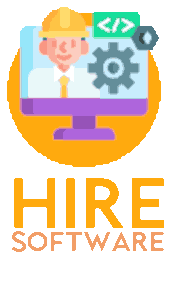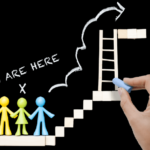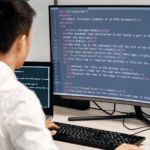Ensuring that your software engineers are up to the task is crucial. Testing your engineers will help to ensure that they can deliver quality products and services that meet the needs of your business.
Here are eight ways to test software engineers you can implement in your organization.
Coding Exercises
Coding exercises are a popular way to test the technical skills of software engineers. Design these exercises to evaluate the engineer’s problem-solving ability, coding style, and attention to detail.
Assess the engineer’s knowledge of programming languages, data structures, and algorithms.
If you want to make coding exercises effective, choose a challenging problem but not impossible to solve.
Design the training to simulate real-world problems that the engineer might encounter in their work.
Providing clear instructions and guidelines for completing the exercise is also essential.
After the exercise, review the engineer’s solution’s code quality, readability, and efficiency.
You can also ask the engineer to explain their thought process during the exercise to understand their problem-solving approach.
Whiteboard Interviews
Whiteboard interviews are a classic way to test software engineers. Use this approach where the engineer is given a problem to solve, and they have to write the solution on a whiteboard.
Whiteboard interviews assess the engineer’s ability to think on their feet, solve problems, and communicate their thought process.
Choosing a problem relevant to the engineer’s role and experience is essential for whiteboard interviews.
The problem should be challenging but not overly complex, and the instructions should be clear and concise.
One potential downside of whiteboard interviews is that some engineers may feel nervous or intimidated.
To overcome this, you can provide a friendly and supportive environment and give the engineer time to prepare and gather their thoughts before starting the interview.
Pair Programming

Pair programming is a collaborative approach to testing software engineers. In this approach, two engineers work together on a problem, with one engineer acting as the driver and the other as the navigator.
The driver writes the code while the navigator reviews the code and provides feedback.
Pair programming is a great way to assess the engineer’s communication skills, teamwork, and ability to work under pressure.
It’s also an excellent way to evaluate their coding style, problem-solving approach, and attention to detail.
Choosing a challenging but straightforward problem is essential to make pair programming effective. The engineers should be given clear instructions and guidelines for the exercise.
You can also provide feedback on the code quality and suggestions for improvement.
Behavioral Interviews
Behavioral interviews are designed to assess the soft skills of software engineers. These interviews focus on the engineer’s past experiences and how they dealt with specific situations.
They can help to evaluate the engineer’s communication skills, problem-solving ability, and ability to work in a team.
Choose questions relevant to the engineer’s role and experience to make behavioral interviews effective.
The questions should be open-ended, allowing the engineer to share their experiences and insights.
It’s also essential to provide a supportive and non-judgmental environment for the interview.
Behavioral interviews can provide valuable insights into the engineer’s personality, work style, and ability to handle difficult situations.
They can also help to identify areas where the engineer may need additional training or support.
Take-home Projects
Take-home projects are an excellent way to test the engineer’s independent ability. During a take-home project, the engineer is given a problem to solve, and they must work on it independently.
A great way to assess an engineer’s ability to solve problems, develop code, and work independently.
Take-home projects should be challenging but relatively easy. If the task is too difficult, the engineer may be unable to complete it, which can be demotivating.
Similarly, if the project is too easy, it may give you an inaccurate assessment of the engineer’s abilities.
A downside of take-home projects is that ensuring the engineer completes the work is challenging.
To overcome this, you can ask the engineer to explain their thought process and approach during the project and provide feedback on the code quality and efficiency.
Testing for Creativity
One challenge in testing software engineers is evaluating their creativity.
While technical skills are essential, creativity is equally important when developing innovative solutions and features.
One way to test for creativity is to give the engineer a problem or project with multiple solutions or approaches.
Engineers can demonstrate their creativity by developing a unique solution that stands out.
Another approach is to evaluate the engineer’s portfolio or past work to look for evidence of creativity.
Consider projects that have won awards, received recognition from clients or colleagues, or exhibit creative problem-solving.
Testing for Cross-Functional Skills

In today’s fast-paced and ever-changing industry, software engineers need to be able to work with a wide range of technologies, platforms, and programming languages.
Testing for cross-functional skills can be challenging, but it’s essential to consider when evaluating candidates.
One way to test for cross-functional skills is to give the engineer a problem or project that requires knowledge of multiple technologies or platforms.
For example, ask the engineer to develop a web application that integrates with a mobile app or develop a software tool that can be used on multiple operating systems.
Another approach is to evaluate the engineer’s past work to look for evidence of cross-functional skills.
Incorporate multiple technologies or platforms into projects that require collaboration with other teams or departments.
Testing for Soft Skills in Remote Work Environments
With the rise of remote work, soft skills such as communication, collaboration, and time management have become even more important for software engineers.
However, testing for these skills can be a challenge when working in a remote environment.
One way to test for soft skills in remote work environments is to use video conferencing or collaboration tools during the interview process.
Observe how the engineer communicates, collaborates, and works in a virtual team.
Another approach is to give the engineer a problem or project that requires collaboration with other team members in a virtual environment.
Engineers can demonstrate their ability to communicate effectively with others in a remote setting.
Wrapping up
Testing software engineers ensure that your team is equipped to deliver quality products and services.
There are many ways to test software engineers, including coding exercises, whiteboard interviews, pair programming, behavioral interviews, and take-home projects.
Tests must be tailored to the engineer’s role and experience to be effective.
The approach should be fair and designed to allow the engineer to demonstrate their skills in the best possible way.
It’s also essential to support your software engineers, including training, mentorship, and feedback on their work.
By testing and supporting your software engineers, you can help ensure your team is well-equipped to meet your client’s demands and the industry’s challenges.
It’s an investment in your team’s success and the success of your organization.







